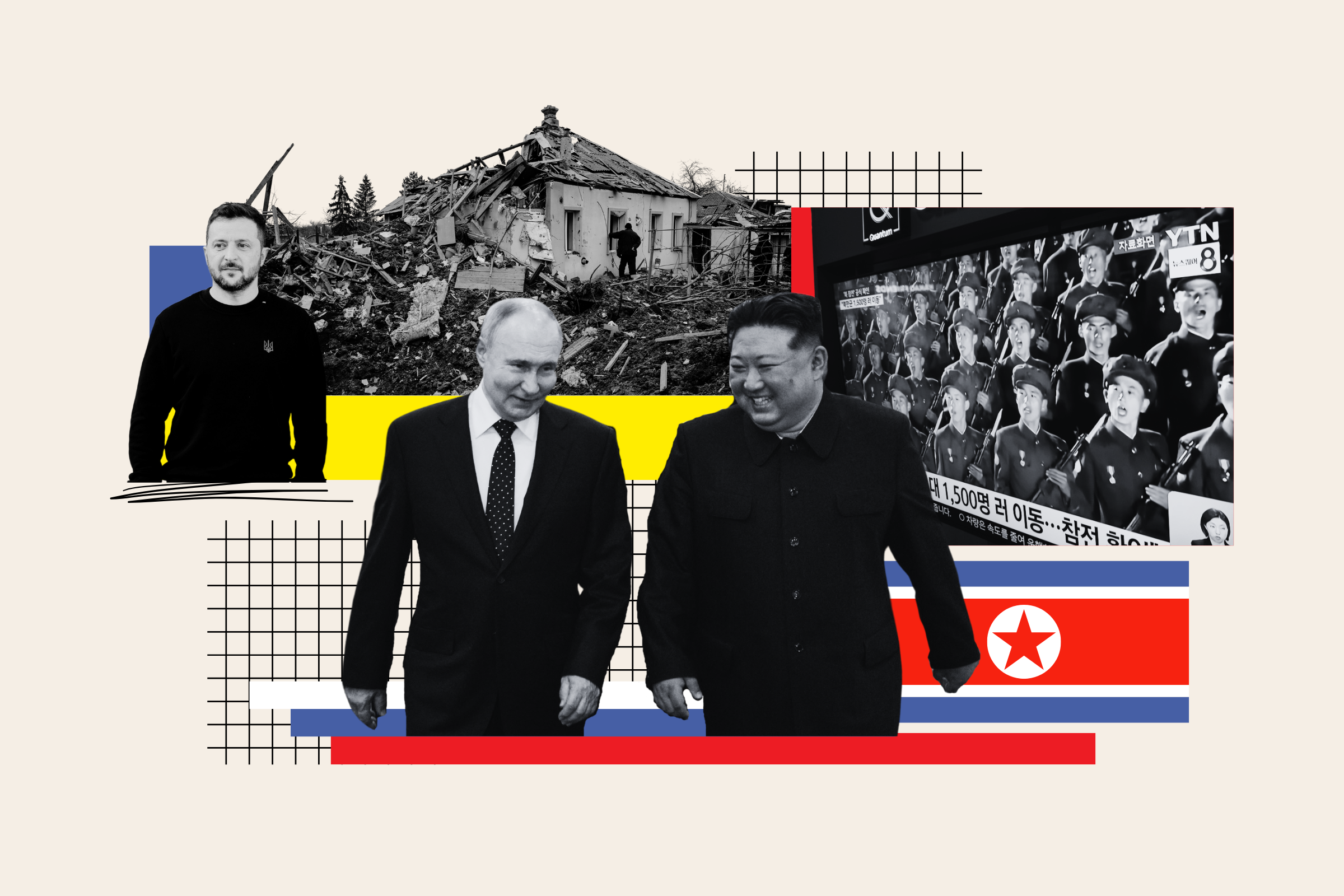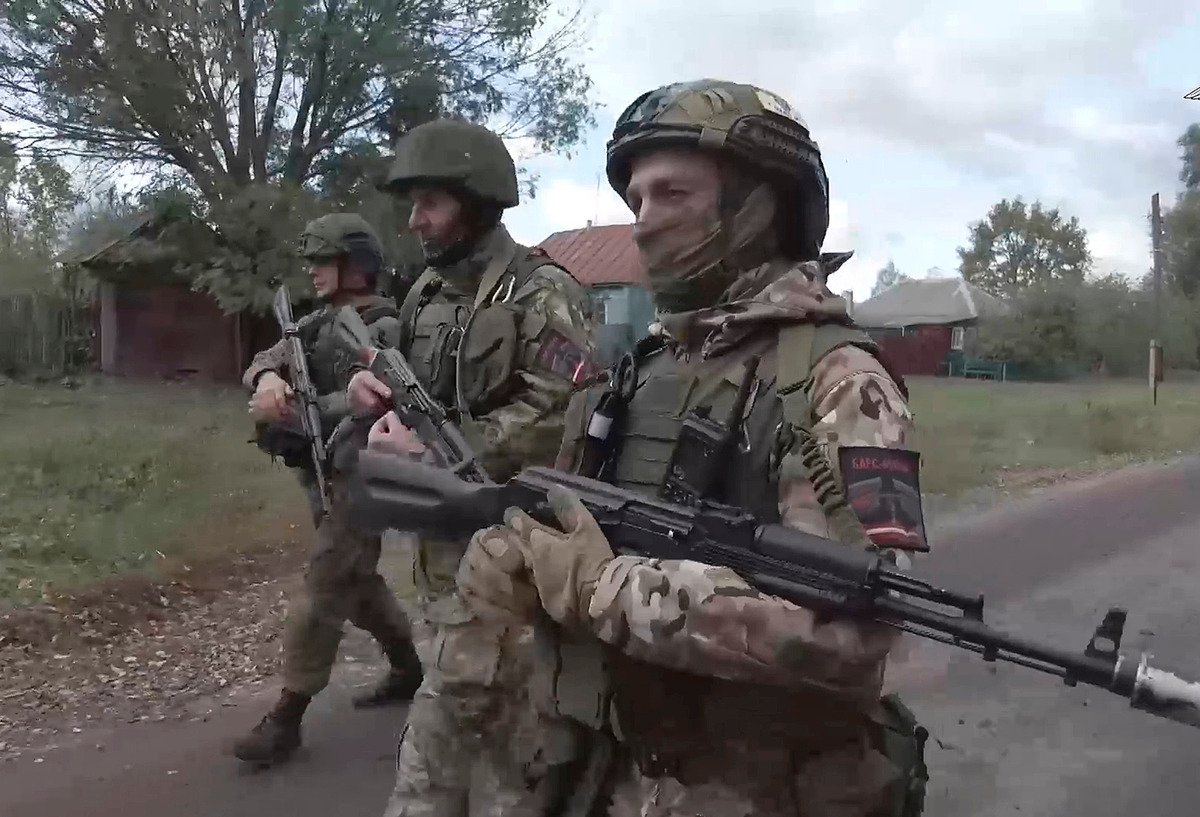
This is “the first step towards a world war,” Ukrainian President Volodymyr Zelensky solemnly told Kiev allies during a massive trip to Brussels last week, as reports emerged of the presence of North Korean forces in Russia, believed to be headed to the front lines against Ukraine. Kyiv and Seoul.
This is precisely what Ukraine’s NATO allies were hoping to avoid. The alliance is concerned about any move that might expand the scope of the grinding conflict in Ukraine, which is already the largest ground war in Europe since World War II, to other countries.
But although officials around the world generally view this as a worrying escalation, World War III is not yet on the horizon.
“Russia’s potential training and deployment of North Korean forces in Ukraine represents another critical phase in the conflict, but will not lead to a broader global war,” said James Rogers, research director at the UK-based Geostrategic Research Council. .

Photo by the Russian Defense Ministry press service via AP
“Although this may escalate the conflict further, it is not serious to suggest that the mere presence of these forces will expand the conflict into a global war,” he said.
South Korean and Ukrainian officials said about 10,000 North Korean troops had been sent to Russia, including an initial batch of about 1,500 fighters.
An estimated 3,000 personnel have arrived at Russian bases, and the remaining 7,000 are scheduled to be deployed by the end of the year, South Korea’s spy agency said Wednesday, according to South Korean media.
More than two and a half years after the start of a full-scale war in Ukraine, both Kiev and Moscow are looking for new ways to refill their exhausted ranks, and winter is unlikely to provide a respite from the rising casualty numbers.
Russia and North Korea signed a defense agreement earlier this year. Buoying the Russian ranks of North Korean forces is likely to be a very attractive prospect for the Kremlin, which is considering the unpopular options of mobilizing more personnel or sending conscripts to Ukraine.
So far, no country outside the conflict has officially sent troops to the front lines, a move that would mark a major shift in the war and cause deep concern for Kiev and its supporters.
Kiev considers Pyongyang to be Moscow’s most dangerous ally, and North Korea has already provided huge shipments of munitions and missiles to Russia.
US Defense Secretary Lloyd Austin said on Wednesday that there is “evidence” of the presence of North Korean forces in Russia, but it is not yet clear what activities they will carry out. North Korea’s representative to the United Nations described these reports as “unfounded.”
Kremlin spokesman Dmitry Peskov described reports of North Korean troops arriving in Russia as “fake news” earlier this month. In new comments on Monday, Peskov said the reports were “contradictory” but did not explicitly deny the allegations.
“North Korea is our close neighbor and partner, and we are working to develop our relations in all fields. This is our sovereign right,” Peskov said in statements reported by Russian official media. He added: “This should not worry anyone, because this cooperation is not directed against third countries.”
British Defense Secretary John Healey said during a joint press conference in London on Wednesday with German Defense Minister Boris Pistorius that it was very likely that North Korean forces had been deployed in Russia, but it was not yet clear whether they had been used in fighting on the lines. Front. .
“I see this as a sign of desperation and a shocking escalation on the North Korean front,” Haley said.
Belarus’s powerful leader and key ally of Russian President Vladimir Putin, Alexander Lukashenko, told the BBC in an interview on Wednesday that “Putin would never try to persuade another country to involve its military in Russia’s special operation in Ukraine.”
Lukashenko said reports of the deployment of North Korean forces were “nonsense.” He added that “it would be a step towards escalation of the conflict if the armed forces of any country, even Belarus, were on the line of contact.”
When Russian forces poured across the Ukrainian border in February 2022, part of the Russian invading force launched operations from Belarus.
Seoul’s National Intelligence Service said last week that North Korea sent about 1,500 special forces soldiers to the Russian port city of Vladivostok from October 8 to 13.
The spy agency said the North Korean soldiers, who were sent to a number of bases in Russia’s far east, were equipped with Russian military uniforms, Russian-made weapons and forged documents claiming that the fighters were residents of regions in Siberia.
“It appears that they were disguised as Russian soldiers,” National Intelligence said. The agency added that the soldiers are expected to be deployed to the front lines once they complete their adaptation training.
Footage published online by Russian and Ukrainian sources in recent days appears to show North Korean soldiers at a Russian training ground in the far eastern Primorsky region, on the border with North Korea.
South Korea, which is deeply concerned about North Korean forces in Russia, said it had summoned Moscow’s ambassador in Seoul and demanded the immediate return of Pyongyang’s fighters to the Korean peninsula.
South Korea also said it was now considering sending weapons to Ukraine, a major change from the long-standing policy of deviating from sending lethal aid to the front lines.
“We have adhered to the principle of not supplying lethal weapons directly, but we can review this matter more flexibly depending on North Korea’s military activities,” South Korean President Yoon Suk-yeol was quoted as saying by South Korea’s Yonhap news agency on Thursday.

“Travel specialist. Typical social media scholar. Friend of animals everywhere. Freelance zombie ninja. Twitter buff.”





More Stories
Taiwan is preparing to face strong Typhoon Kung-ri
Israel orders residents of Baalbek, eastern Lebanon, to evacuate
Zelensky: North Korean forces are pushing the war with Russia “beyond the borders”